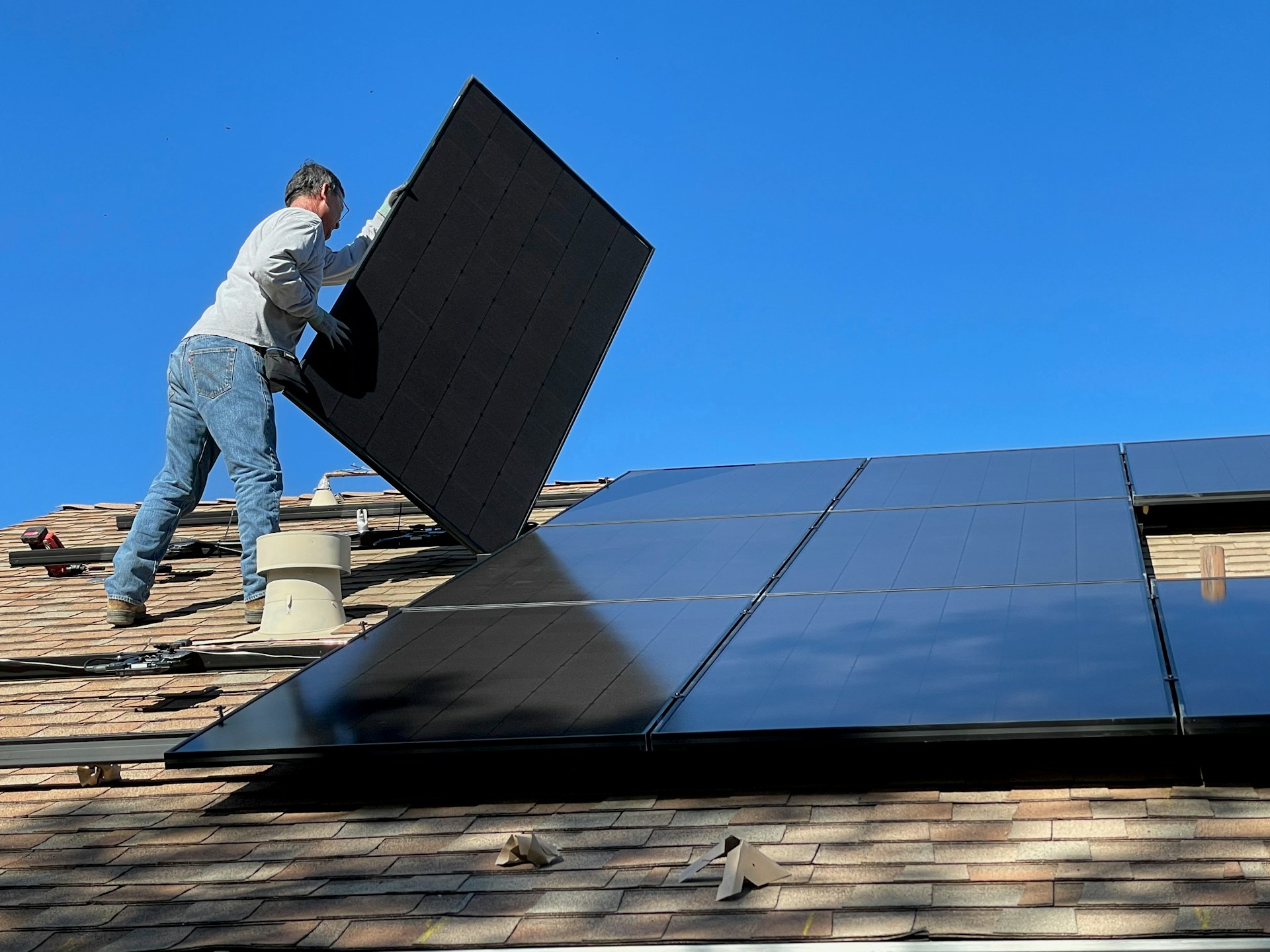Considering Solar Panels to Reduce Your Electricity Bill? Keep these Facts in Mind

When you’re budgeting, planning for expenses can be a challenge. One area where this hits most people’s budgets is electricity bills. This unpredictability, coupled with rising energy costs, can put a strain on your finances.
This may have you wondering: how can you lower your electricity bill and make it more consistent over time?
One solution could be to add solar panels to your house. Solar panels can reduce your costs of electricity consumption and ensure you have more consistent electricity bills over time. We also understand that many SaverLife members rent their homes or don’t have the up-front costs needed to install solar panels.
If solar panels are something you’re planning to invest in, consider these tips to decrease your electricity bill and maintain a more consistent budget.
Adding Solar Panels to Your Home
Before you add solar panels to your home to help fix your electricity bill, it’s good to understand exactly what that means. Let’s look at how solar panels work and what they might cost so you can make an informed decision about adding solar panels to your home.
How Solar Panels Work
When you put solar panels on your roof, they collect sunlight and feed the electric current through your home’s electric panel to be distributed throughout your home.
If there’s extra current leftover, it can be stored in batteries for later use or sold back to electric companies so it can be used by your local energy grid. This is called net metering.
The Cost
If you’re ready to add solar panels to your home, it’s important to first consider how much it’ll cost. Although the energy generated by your system is free, it will cost money to install.
According to Consumer Affairs, installing solar panels can cost between $14,000 and $22,000 on average for a 6-kilowatt system. (Residential use usually requires a 6- or 10-kilowatt system.) It typically takes six to ten years before you break even on your initial solar panel investment through energy savings. The typical lifespan of a solar panel is 25 to 30 years.
If you’re ready to buy solar panels, there are different financing options available. You can:
- Rent or lease your solar panels
- Take out a solar loan. Solar loans work the same way as other home improvement loans but sometimes come with lower interest rates thanks to subsidy programs.
When considering a solar loan payment, be sure to factor in any other electricity costs or utility bills you may still need to pay. It’s likely you’ll still have an electric bill from the overall usage or if your solar panels don’t produce energy, like when it’s overcast or nighttime.
Tax Credits to Help Cover the Cost of Solar Panels
If you decide to install solar panels, you can qualify for a federal tax credit to help cover the cost. The amount of the credit you qualify for depends on the year you install your solar panels. Additionally, this credit is set to be phased out after 2034.
Here are the current credit amounts you could receive:
- 30% for equipment placed in service in tax years 2017 through 2019
- 26% for equipment placed in service in tax years 2020 through 2021
- 30% for equipment placed in service in tax years 2022 through 2032
- 26% for equipment placed in service in 2033
- 22% for equipment placed in service in 2034
Keep in mind that this tax credit doesn’t reduce your taxable income. It’s deducted from your total tax liability instead.
While claiming a tax credit can help lower the cost of installing solar panels on your home, it’s important to remember that you’ll pay for the panels and installation prior to receiving the tax credit. The credit will be applied to your taxes when you file them for the year in which you install the panels. Be sure to budget for these expenses in advance, so you don’t have to rely on that tax credit for additional support.
Things to Keep in Mind
As we’ve said above, if you’re looking to invest in in-home amenities to lower your electricity bill and make it more consistent, solar panels might be a good fit for you.
Whether you’re researching panel options or ready to invest in a solar system, keep these four takeaways in mind:
- Understand exactly how solar panels work with your local electric company, and see if they offer net metering.
- Take time to research how all fees associated with solar panels will impact your financial health. Determine the best way to cover the costs based on your existing budget. You might also consider renting your solar panels or taking out a loan.
- Just because you’re generating electricity doesn’t necessarily mean that you won’t receive electricity bills. You’ll still have to pay for energy used when your solar panels aren’t making any energy
- Be sure to apply for the tax credit you can receive in the year you install them.
Are you interested in installing solar panels but rent your home? SaverLife would love to hear your story. Complete this brief survey to connect with the Saverlife team.
Kimbree Redburn is an Accredited Financial Counselor® with a background in economic development. She works with her clients to help them understand their financial options and make money decisions with confidence. She believes that financial education gives people a chance to build a better life.
